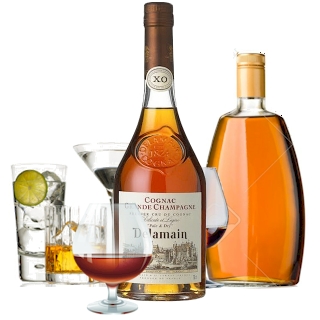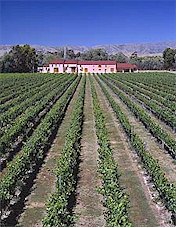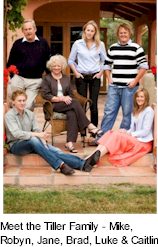


Prior to the 1994 vintage, Proprietor Michael Tiller, then an airline pilot with Air New Zealand, together with his wife Robyn, operated Isabel Estate successfully as a contract grape growing vineyard supplying some of Marlborough's leading wine producers with much sought after premium fruit.

The character and individuality of their fruit derived from a unique soil profile and vineyard location encouraged them to produce and market their own wine under the Isabel Estate label. This was regarded as the most natural of evolutionary steps. Located in the Wairau Valley in the heart of Marlborough, Isabel Estate Vineyards receives the full benefit of extended sunshine hours combined with a long, relatively cool growing season. Long, brilliantly sunny, mild autumns allow for the development of intense flavours and aromas in the fruit.
Isabel Estate is not only one of the largest privately owned estates in Marlborough, it also has some of the oldest vines in Marlborough producing exceptional quality grapes and wines from: Sauvignon Blanc, Chardonnay, Pinot Noir, Pinot Gris and Riesling. Yields for the Isabel Estate wines are restricted by pruning to low bud numbers and, where necessary, shoot and bunch thinning ensures that fruit quality is fully optimised.
Isabel Estate's terroir combines deep free-draining gravel with a narrow layer of calcium rich clay in the subsoil. The clay layer releases its moisture slowly preventing excessive water loss, reducing the need for irrigation in the hot, windy weather typical in the North-Westerly winds of spring and early summer.

In much of Marlborough, the water table is very close to the surface. In contrast, Isabel Estate's water table is sufficiently deep, beyond reach of the vine's roots, thereby preventing excess vigour in the vines. This contributes to the fruit quality, reducing the overtly herbaceous green characters associated with an excess of foliage and shaded fruit.
The tight complex soil structure and resultant low vine vigour has lent itself to low trellised, narrow planted rows, according to the traditional Burgundian practice. The Estate has over twice the number of vines per hectare than is usual in Marlborough. This allows for lower yields per vine, thereby giving the much sought after concentration and depth to wines that can only originate from lower yielding vineyards.
Sustainable viticultural practices maintain vineyard health and soil nutrition, using a combination of mulching and organic fish based fertiliser. The cool dry Marlborough climate means vineyard sprays can be kept to a very low level. Irrigation is kept to a minimum to ensure vine health and complete fruit ripeness.
"At Isabel Estate we adapt the vineyard to its environment by carefully combining rootstock selection and plant spacings with seasonal handwork, driving the vineyard according to each season", proprietor Michael Tiller says. "The Isabel philosophy on working the land is simple: "respect the soil where the grapes grow and allow the unique characters of each vineyard and variety to be expressed in the final wine!"
